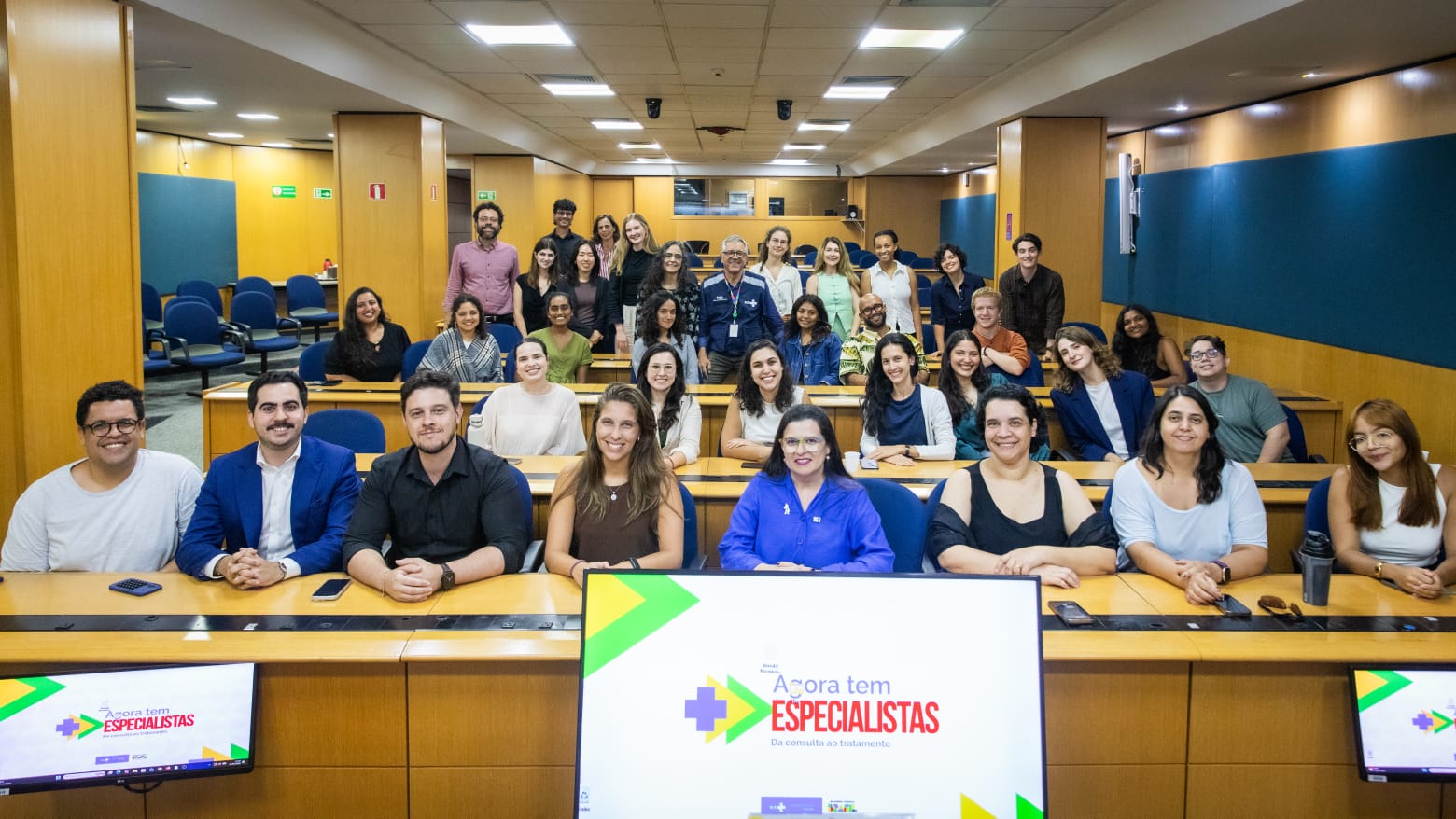Community voices: developing strategies for early pregnancy disclosure in Ethiopia
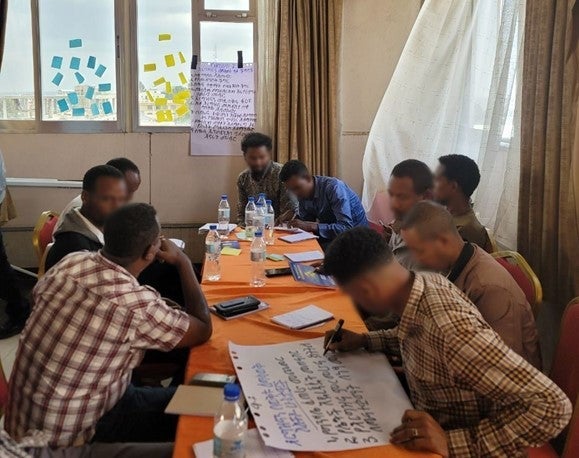
Pictured above: Community Advisory Board members discuss strategies to encourage early pregnancy disclosure and care.
By Clara Pons Duran
Rose Service Learning Fellow
Post Doctoral Research Fellow, Department of Epidemiology
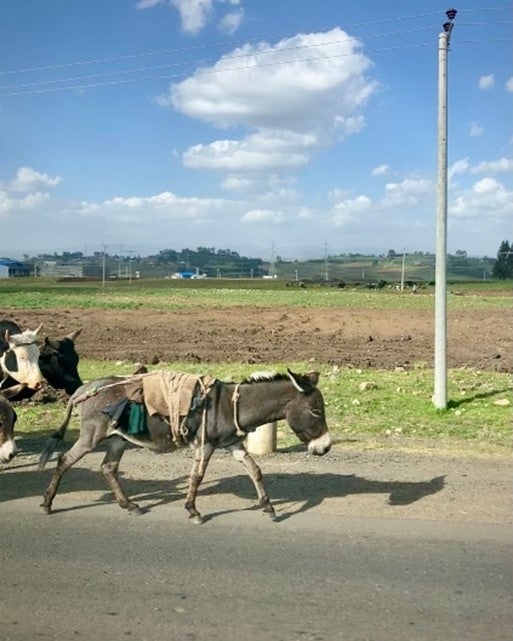
I’m in Ethiopia, sitting in a car. While I observe the fields and witness the construction of some factories and big buildings that will transform the landscape in the next few years, I reflect on my recent experiences.
My name is Clara, a Postdoctoral Research Fellow with the HaSET Maternal and Child Health Research Program at HSPH. Over the past two years, I’ve had the privilege to grow professionally contributing to the improvement of maternal and child health in Ethiopia. My recent work at HaSET has focused on women’s access to antenatal care during pregnancy and how to predict attendance to antenatal care visits.
Through an ongoing process of data quality assurance, we observed that many women of reproductive age in our study site disclosed their pregnancies late and initiated antenatal care after the first trimester. Recognizing the importance of this issue, our team has realized that a better understanding of this problem would allow us to design interventions that promote early pregnancy disclosure and antenatal care initiation, leading to improved pregnancy outcomes, reduced complications, and a more positive experience for women. At the same time, we would improve the data quality of our pregnancy cohort with complete pregnancy follow-up. Thanks to the Rose Service Learning Fellowship, we have now been able to dive deeper into this issue. The Fellowship took me to the Birhan field site, Ethiopia, where I had the opportunity to engage with and learn from the community to find the reasons behind the delays in pregnancy disclosure and antenatal care initiation.
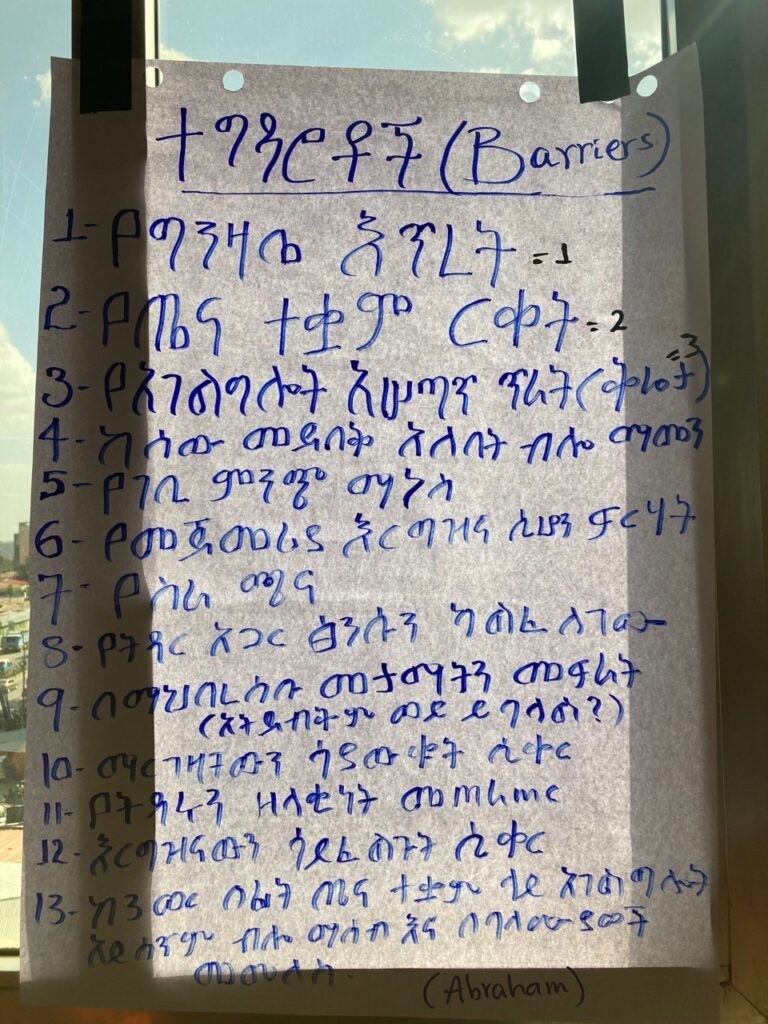
Community-based participation is a central value to the goals of the HaSET team. In this context, we conducted a participatory workshop in collaboration with the Birhan Community Advisory Board (CAB) members of our studies. This group comprises community and religious leaders, health facility heads, health extension workers, and regional administrators. We employed a community engaged approach fostering a platform for the participants to learn from each other and share their knowledge, including the team of facilitators and myself. It was my first experience engaging with the CAB and I was excited to interact with them and contribute to co-design future strategies to improve pregnancy disclosure in our study area.
Our interactive and participatory activity was designed to engage CAB members as active participants in the identification of new interventions to improve early pregnancy disclosure and antenatal care initiation in their community.
- We used a structured consensus building approach to facilitate the discussion. Initially, the team of facilitators provided context on the objective of the workshop: in our pregnancy cohort less pregnant women are identified early in the first trimester of pregnancy.
- Participants were divided into small groups by gender. This arrangement aimed to create a more comfortable environment for addressing potentially sensitive topics related to pregnancy disclosure.
- Participants were encouraged to identify barriers to pregnancy disclosure and antenatal care initiation, writing those down on sticky notes. Participation was a success, and many ideas were brought to discussion!
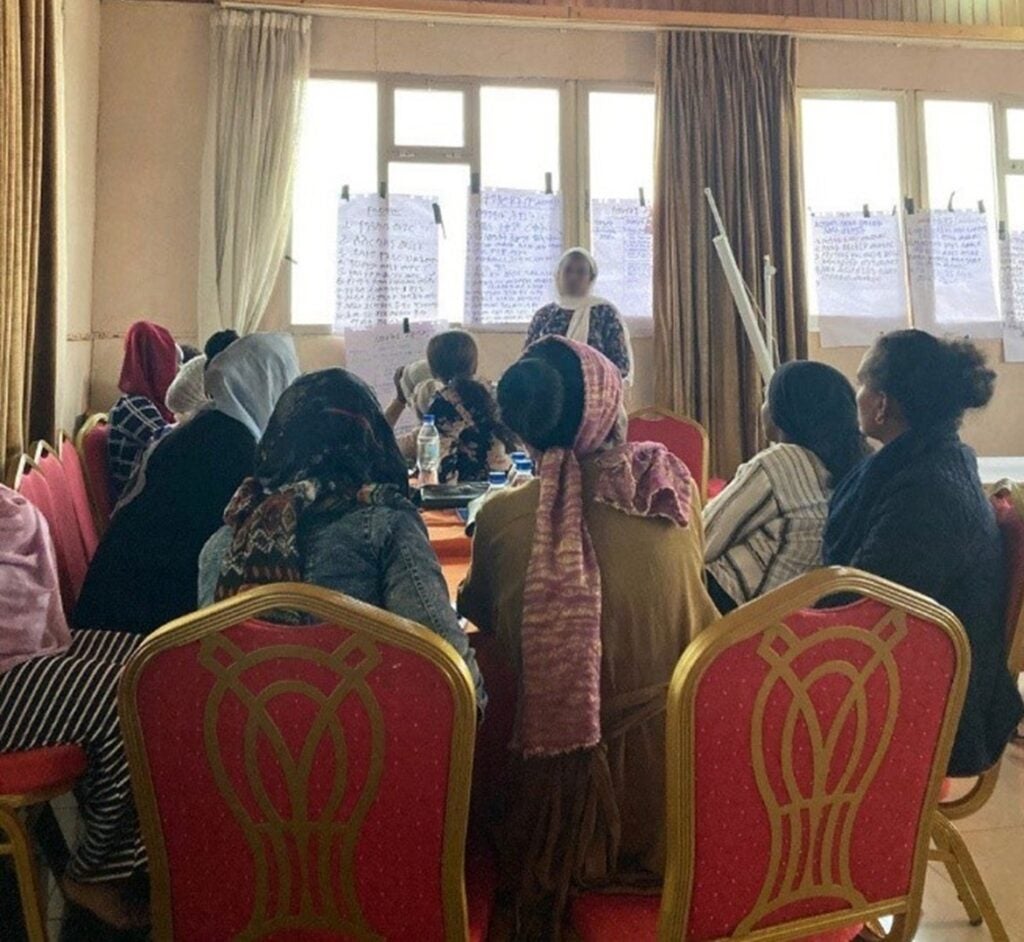
For the next step, each of the small groups was requested to cluster and prioritize the barriers, thus, active discussions took place, and everyone shared their ideas out loud. Our HaSET field supervisors did a great job moderating the small group discussions. Subsequently, the discussion shifted towards solutions and strategies for overcoming the identified barriers. Interestingly, all groups came up with very similar solutions despite using different real examples and views on how to implement those. Behavioral and sensitization campaigns to raise awareness on the importance to disclose pregnancy and initiate antenatal care during the first trimester of gestation, and educational interventions to help women recognize signs and symptoms of pregnancy were among the most repeated proposed strategies. Finally, a big group discussion was convened where all ideas were shared by a representative of each team, and a collective list of priority interventions and strategies was put together
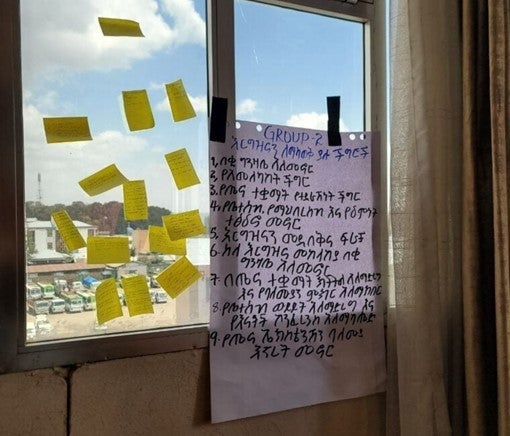
I felt proud of the team’s organization and the motivation of each single workshop participant. The activity was a success culminating in a list of potential solutions and strategies that could foster early pregnancy disclosure and antenatal care initiation within our community. This list has been shared internally with the HaSET team, setting the stage for our next steps. We’re actively seeking funding to execute these proposed interventions, and we’re committed to keeping CAB members and the wider community informed of our progress. This collaborative approach ensures that the community’s valuable insights will guide the implementation of these initiatives.
As a researcher and public health professional, this experience served as a valuable lesson. I learned that the power of the collective community knowledge is immeasurable. I understood that designing an approach to respond to any research question must be aligned with the needs of the recipient community and that every strategy must be culturally sensitive and implementable within the unique context of the setting.
It’s dark and I’m almost in Addis Ababa. This experience in Ethiopia shortened the distance between our teams in Boston and Addis, strengthened the connection among us, and shaped our next steps based on the community needs and preferences. Good night, Ethiopia, more collective work to come!


